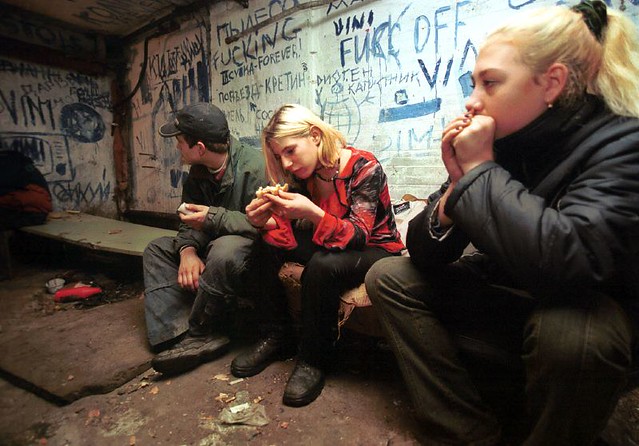
Adolescents who abuse alcohol or drugs have very low regards for others, a new study published in the Journal of Child and Adolescent Substance Abuse says. It is evident from the fact that there is higher incidence of drunken driving, unprotected sex and brawls among youngsters who commit these crimes in a state of intoxication.
The research further says that such teens are unlikely to volunteer to help others which, in turn, would help them in staying sober. Maria Pagano, the author of the study and associate professor of psychiatry at Case Western Reserve University School of Medicine, found the adolescents to be inherently selfish with big egos, and an addiction only fuels these attributes in them.
Pagano recruited 585 adolescents from Cuyahoga County high schools and the largest residential treatment facility in Northeastern Ohio for the study. She mapped them by their age, gender, race and residence zip code. Of them, 390 adolescents reported little or no drug and alcohol abuse against 195 who were addicts.
She had designed the study so as to elicit the relationship between the severity of the addiction and regard for others. The parameters Pagano chose to gauge the relationship were their propensity to driving under the influence, engaging in unprotected sex (despite knowing that they have a sexually transmitted disease) and volunteerism (willingness to help others).
The trend that came out from the study was that the greater the severity of the addiction, the higher the disregard for others in the form of drunken driving and unprotected sex. As it turned out, 88 percent of the youths did not use alcohol or drugs at the time of their last intercourse, among them 55 percent of the respondents had unprotected sex, and 26 percent of the youths had a history of driving under the influence (DUI).
Youths who did not use protection at the time of last sex had a history of STDs and met the diagnostic criteria for substance dependency when compared to youths with moderate use.
The addicts, feels Pagano, have a very low awareness about how their actions would impact others. Even while they are in recovery, there seems to be no signs which predict that they care for others. They are in no mood to help others as volunteers.
It has been proved in 12-step Alcoholics Anonymous and Narcotics Anonymous programs that being in service to others helps young addicts in their recovery process and aids in getting out of that self-centeredness. Helping others is known to cut relapse rates by almost 50 percent. In fact, Pagano suggests volunteerism as a means to fight addiction as it has the potential to prevent and curb addiction.
However, further research is needed to corroborate these findings, including follow-up of treated addicts over one year and monitoring their willingness to service. This would help in measuring whether their volunteerism has helped reduce any risky behaviors or not.
During adolescence, youngsters are full of natural energy, which makes them a tad rebellious and when coupled with an addiction, it definitely translates into arrogance and other misdemeanors. Hence, it is also a highly sensitive area dealing with addiction in adolescents. With right counselling and therapy they can be guided back on the track.


No comments:
Post a Comment